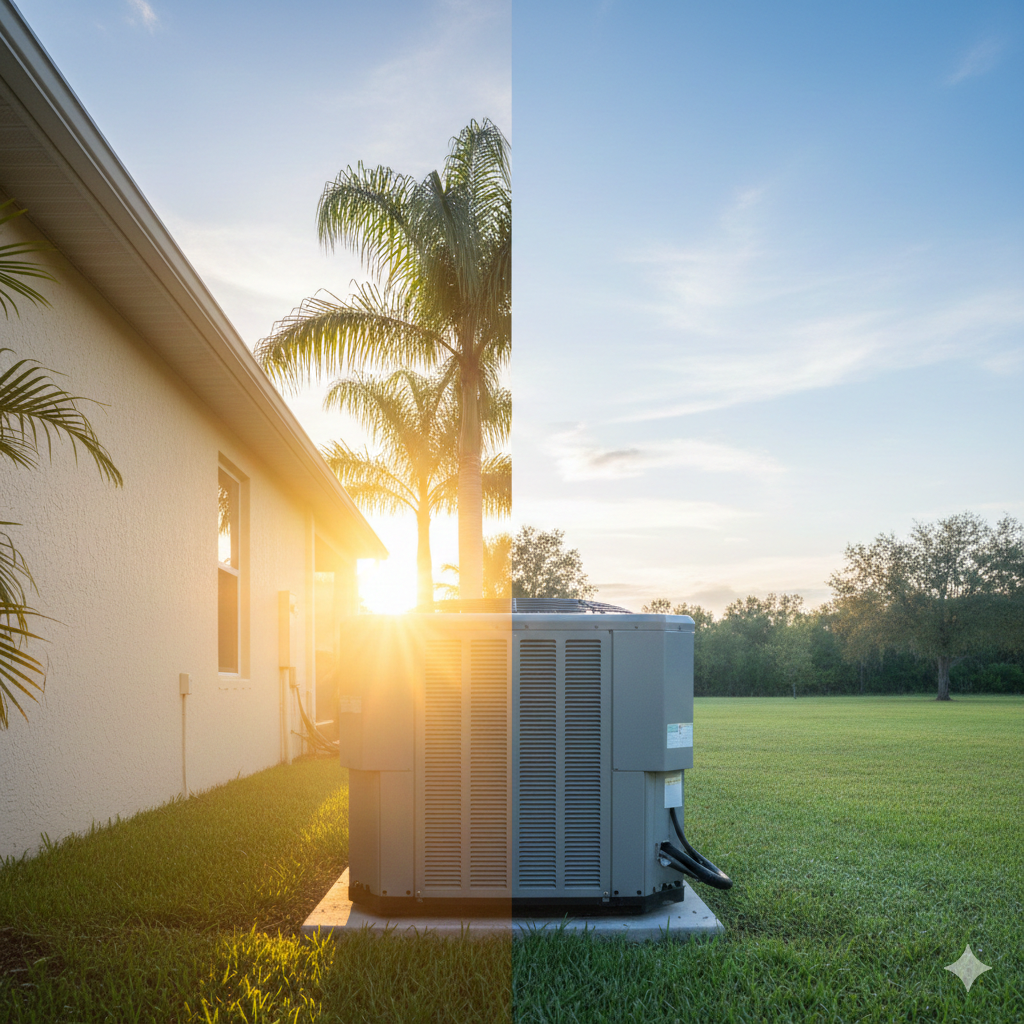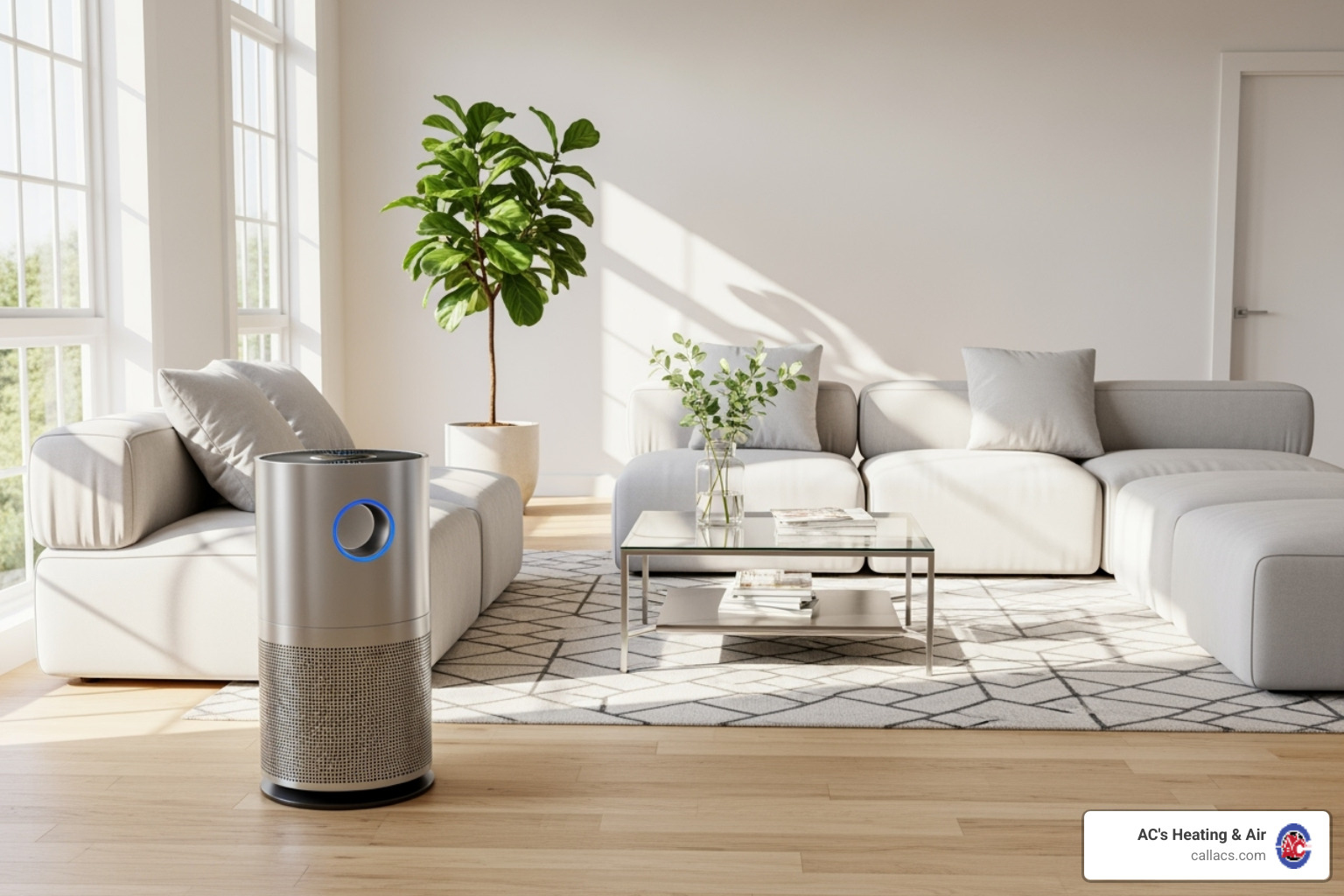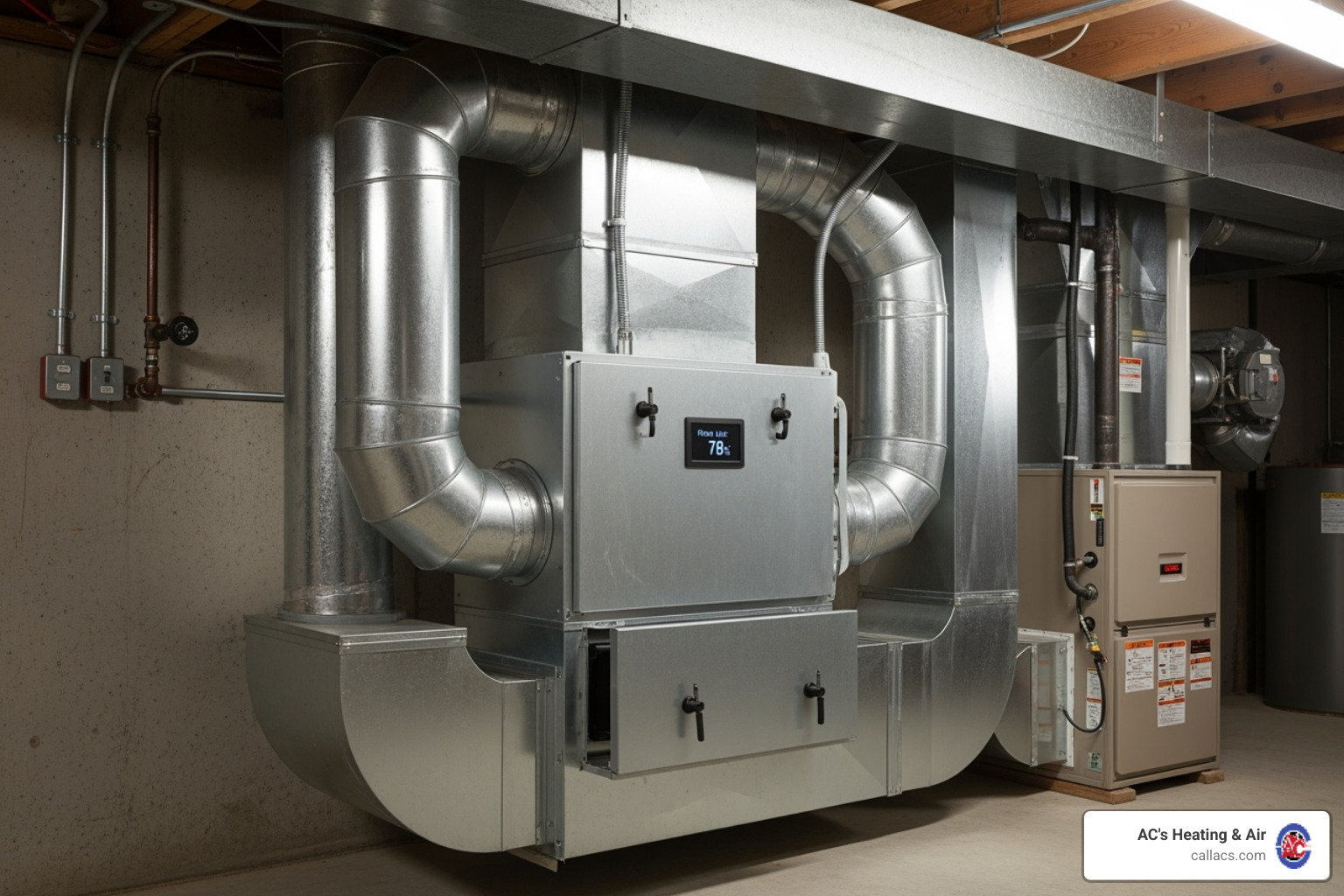Everything You Need to Know About Replacing Your HVAC System

The Lowdown on Replacing Your HVAC System
HVAC replacement can be essential for keeping your home comfortable and energy-efficient. Your HVAC (Heating, Ventilating, and Air Conditioning) system is crucial in maintaining a pleasant indoor environment. It ensures you stay warm in winter, cool in summer, and enjoy good air quality year-round.
Quick Answer:
1. Age of the System: Typically, HVAC systems last 10-15 years.
2. Frequent Repairs: If repairs are becoming more frequent and costly, consider replacement.
3. Rising Energy Bills: Higher-than-usual energy bills can signal an inefficient system.
4. Inconsistent Temperatures: Difficulty maintaining a consistent temperature is a red flag.

When your system is outdated or underperforming, it can lead to uncomfortable temperatures, poor air quality, and increased energy costs. By replacing your old HVAC unit with a newer, more efficient model, you can lower your utility bills and enhance your overall comfort.
AC’s Heating & Air in Central Florida offers reliable and efficient HVAC replacement services to help you stay comfortable year-round. Ready to dive deeper? Let’s get started!
Signs It's Time to Replace Your HVAC System
Knowing when to replace your HVAC system can save you from discomfort and high costs. Here are the key signs to watch for:
Age of System
HVAC systems typically last between 10-15 years. If your unit is approaching or exceeding this age, it may be time to consider a replacement. Older systems are often less efficient and more prone to breakdowns. Pro Tip: Look for the manufacturing date on a nameplate or metal tag on your unit. If there's no date, you can use the brand name, model, and serial number to decode its age online or by calling a dealer.
Frequent Repairs
Are you calling the repair technician more often than you'd like? Frequent repairs are a clear indicator that your HVAC system is on its last legs. As the system ages, parts wear out and need replacing more often, leading to higher maintenance costs. The $5,000 rule can help: multiply the age of your unit by the repair cost. If the result is over $5,000, it’s time to replace.
Rising Energy Bills
If your energy bills are steadily increasing without a corresponding rise in usage, your HVAC system may be losing efficiency. Older units have to work harder to maintain the same level of comfort, leading to higher utility costs. Fact: Newer HVAC models are designed to be more energy-efficient, potentially saving you money on your monthly bills.
Inconsistent Temperatures
Do you find some rooms too hot while others are too cold? Inconsistent temperatures can indicate that your HVAC system is struggling to distribute air evenly. This could be due to blocked vents, ductwork issues, or an underperforming unit. Quote: "Experiencing uneven heating or cooling in different parts of your home can be a sign of blocked vents or ducts, or issues with the HVAC controls."

If any of these signs sound familiar, it might be time to consider an HVAC replacement. Upgrading to a new, efficient system can improve your comfort, lower energy bills, and reduce the need for frequent repairs.
Ready to learn more about the costs involved in replacing your HVAC system? Let's dive into the next section.
HVAC Replacement Costs
Replacing your HVAC system is a significant investment, but it can greatly improve your home's comfort and energy efficiency. Let's break down the costs involved.
Equipment Costs
The cost of a new HVAC system varies widely based on the type of equipment you choose. Here's a quick overview of national average costs, including installation:
- Electric Furnace: $2,500–$3,500
- Gas Furnace: $3,000–$4,000
- Ductless Split AC: $3,000–$5,000
- Oil Furnace: $5,000–$8,000
- Central AC: $5,000–$10,000
- Heat Pump: $5,500–$8,000
- Geothermal Heat Pump: $15,000–$40,000
Installation Costs
Installation costs are another major factor in your total HVAC replacement expense. These costs typically include labor, permit fees, and any additional contractor work needed to get your system up and running.
Labor
Labor costs can range from $1,000 to $3,000 depending on the complexity of the installation. For example, installing a geothermal heat pump is more labor-intensive than setting up a ductless split AC system.
Permit Fees
Most areas require permits for HVAC installations. Permit fees can add another $100 to $500 to your total cost.
Additional Contractor Work
Sometimes, additional work is needed to ensure your new system operates efficiently. This can include:
- Ductwork Replacement: If your existing ducts are old or leaky, replacing them can cost around $2,100 for a 2,000-square-foot home.
- Electrical Upgrades: Upgrading your electrical system to support a new HVAC unit can add $500 to $1,500 to your costs.
- Structural Modifications: If your home requires structural changes to accommodate the new system, expect to pay an additional $1,000 to $3,000.
Average Costs
On average, most homeowners spend about $7,000 on a new HVAC system, but costs can range from $3,000 to $12,000 depending on the factors mentioned above.
Pro Tip: Always get multiple quotes from different HVAC contractors to ensure you're getting the best deal. For instance, one homeowner in New Jersey spent around $16,000 on a high-efficiency natural gas HVAC system, while another in Kentucky paid $5,750 for a dual fuel system.
Understanding these costs can help you budget effectively for your HVAC replacement. Next, we'll dive into factors you should consider when choosing a new HVAC system.
Factors to Consider When Choosing a New HVAC System
Choosing the right HVAC system for your home involves several important factors. Let's break down the key considerations:
Brand Considerations
The brand of your HVAC system can significantly impact its quality and performance. Well-known brands often come with higher price tags but offer superior reliability and efficiency.
Why Brand Matters:
- Quality: Top brands use high-quality materials and components, leading to longer-lasting systems.
- Performance: Recognizable brands typically perform better, especially in larger spaces.
- Energy Efficiency: Brands known for energy-efficient models can save you money on utility bills over time.
Pro Tip: Consult with an HVAC professional to ensure you choose a brand that fits well with your existing system components.
Climate Considerations
Your local climate plays a crucial role in determining the best HVAC system for your home.
Cooling and Heating Capacity:
- Southern U.S.: Homes in hot and humid areas need powerful air conditioners to handle high temperatures.
- Northern U.S.: In colder regions, a robust heating system is essential to keep your home warm during frigid winters.
Pro Tip: An HVAC technician can help you choose a system with the right cooling and heating capacity for your specific climate.
Efficiency Ratings
Energy efficiency is a critical factor that affects both your environmental footprint and your utility bills.
Key Efficiency Ratings:
- SEER (Seasonal Energy Efficiency Ratio): Measures the efficiency of air conditioners. Higher SEER ratings mean more energy savings.
- HSPF (Heating Seasonal Performance Factor): Indicates the efficiency of heat pumps. Higher HSPF ratings result in lower heating costs.
Hidden Costs
Be aware of potential hidden costs that might not be included in the initial estimate.
Common Hidden Costs:
- Ductwork: Replacing or repairing ductwork can add around $2,100 to your total cost.
- Permits and Fees: Some installations require permits, which can add to your expenses.
- Additional Contractor Work: Electrical or structural modifications may be necessary, increasing labor costs.
Pro Tip: Always ask your HVAC technician to provide a detailed estimate that includes potential hidden costs.
By considering these factors—brand, climate, efficiency ratings, and hidden costs—you can make an informed decision that meets your home’s needs and your budget.
The HVAC Replacement Process
Replacing your HVAC system involves several key steps, from the initial assessment to the final system testing. Here's a breakdown of what to expect:
Initial Assessment
The first step in the HVAC replacement process is a thorough home evaluation. A licensed installer will visit your home to assess your heating and cooling needs. This involves:
- Load Calculations: The installer will perform load calculations to determine the right size of the HVAC system for your home. This ensures that your new system will efficiently heat and cool your space without wasting energy.
- Energy Calculations: Energy calculations help estimate the energy consumption of the new system. This is crucial for understanding potential savings on your energy bills.
Installation Day
Installation day is when the real work begins. Here’s what you can expect:
- Removal of Old Unit: The installer will start by safely removing your old HVAC unit. This includes disconnecting any electrical and refrigerant lines and carefully taking out the old equipment.
- Installation of New Unit: Next, the new HVAC system will be installed. This involves setting up the new unit, connecting it to existing ductwork, and ensuring all components are securely in place.
- Refrigerant Lines: The installer will flush and replace any refrigerant lines to ensure the new system works efficiently. Proper handling of refrigerant is crucial for environmental safety and system performance.
- System Overview: Once the installation is complete, the installer will give you an overview of the new system. They will explain how to operate it, discuss any maintenance tips, and answer any questions you may have.
- System Testing: Finally, the system will be thoroughly tested. This includes checking for proper airflow, verifying that the thermostat functions correctly, and ensuring that the system heats and cools as expected.
By following these steps, you can ensure a smooth and efficient HVAC replacement process. Up next, we’ll explore additional upgrades and repairs that you might consider during your HVAC replacement project.
Additional Upgrades and Repairs During HVAC Replacement
Ductwork Replacement
Replacing ductwork can be crucial if your current ducts are old, damaged, or leaking. Damaged ducts can lead to inefficient airflow, uneven temperatures, and increased energy bills.
Signs you might need ductwork replacement include:
- Strange noises like whistling or rattling
- Uneven temperatures in different rooms
- Higher than usual energy bills
Costs for ductwork replacement vary widely, ranging from $750 to $3,300 or more. The benefits, however, include improved air quality, better energy efficiency, and reduced allergens in your home.
Insulation Upgrades
Adding or upgrading insulation during an HVAC replacement can significantly boost your system's efficiency. Insulation helps maintain consistent temperatures and prevents mold by eliminating condensation in ductwork.
Benefits of insulation upgrades:
- Improved energy efficiency
- Reduced energy bills
- Mold prevention
Insulation costs range from $1,000 to $2,000, depending on the project's scale. This investment pays off by making your HVAC system run more efficiently and extending its lifespan.
Thermostat Installation
A new HVAC system often calls for a new thermostat. Options include manual, programmable, and smart thermostats:
- Manual thermostats: Simple and inexpensive, costing around $100.
- Programmable thermostats: Allow you to set schedules, costing between $100 and $200.
- Smart thermostats: Offer advanced features like remote control and learning capabilities, costing $200 to $300.
Many HVAC installers include thermostat installation in their service, so be sure to ask about it.
Zoning Systems
Zoning systems use dampers in the ductwork to direct air to specific areas of your home. This allows for more precise temperature control and can lead to significant energy savings.
Benefits of zoning systems:
- Customized comfort in different areas
- Reduced energy bills
- Enhanced system efficiency
Costs for adding zones range from $2,000 to $3,000. Installing a completely new zoned system can cost between $7,500 and $12,500. Each zone requires its own thermostat, adding to the overall cost but offering tailored comfort for each area.
Frequently Asked Questions about HVAC Replacement
How often should you replace your HVAC?
Typically, you should replace your HVAC system every 10-15 years. This is because mechanical parts wear out over time, and finding replacement parts for older systems can become difficult. Regular maintenance can extend your system's lifespan, but eventually, efficiency drops and repairs become more frequent and costly.
Is getting a new HVAC system worth it?
Yes, getting a new HVAC system can be worth it for several reasons:
- Home Value: A new, efficient HVAC system can increase your home's value.
- Energy Savings: Modern HVAC systems are more energy-efficient, which can lower your utility bills.
- Comfort: New systems provide better temperature control, ensuring consistent comfort throughout your home.
What is the rule of 5000 for HVAC?
The $5,000 rule helps you decide whether to repair or replace your HVAC system. Multiply the age of your equipment by the estimated repair cost. If the result is under $5,000, repair it. If it's over $5,000, replace it. This rule helps balance the cost of repairs against the benefits of a new, more efficient system.
By understanding these key points, you can make an informed decision about HVAC replacement. Ready to explore your options? Contact AC's Heating & Air for a professional assessment and personalized recommendations.
Conclusion
Replacing your HVAC system is a big decision, but it can bring significant benefits to your home. A new, energy-efficient system can lower your energy bills, improve indoor comfort, and increase your home's value. Plus, with modern features like smart thermostats and zoning systems, you can enjoy better control over your home's climate.
AC's Heating & Air is here to help you through every step of the HVAC replacement process. Our team of licensed and insured professionals will assess your home's needs, recommend the best system for you, and handle the installation with care and expertise. We serve all of Central Florida, ensuring that your home stays comfortable year-round.
If you're ready to upgrade your HVAC system, contact us today for a free estimate. Let us help you find the perfect solution for your home and budget.



